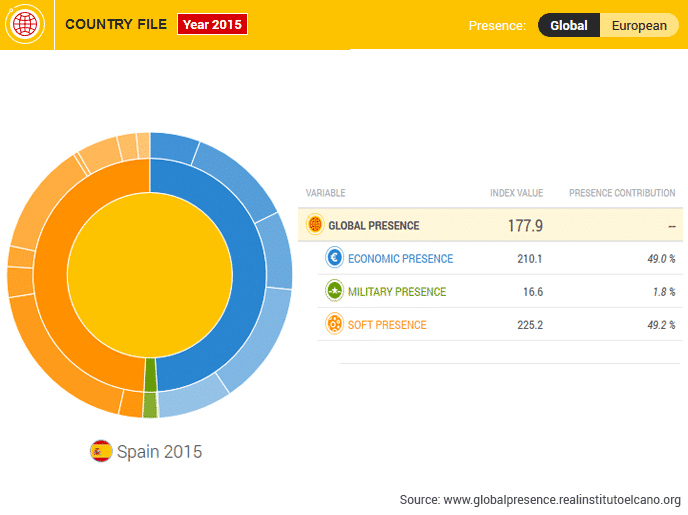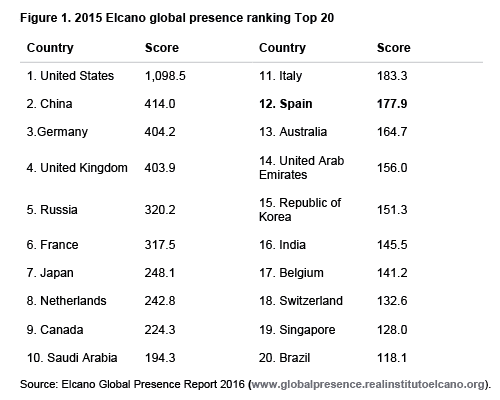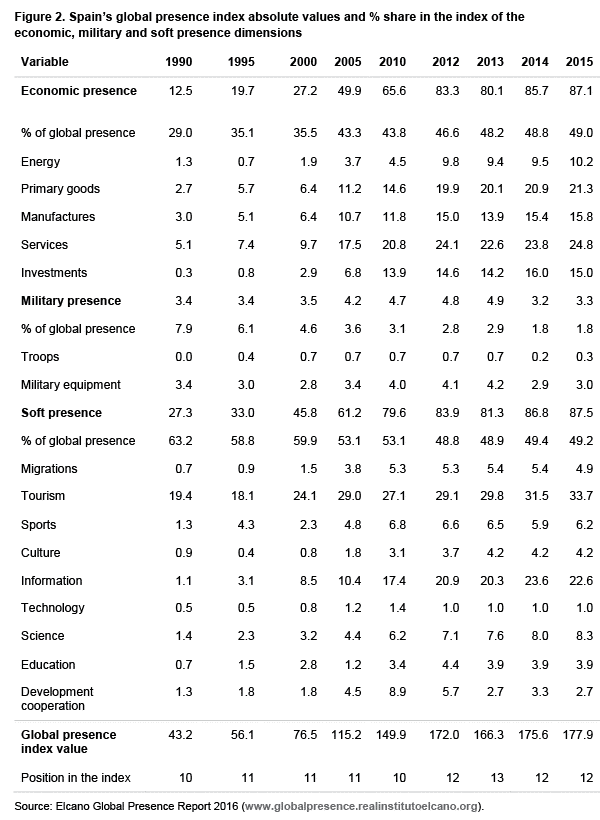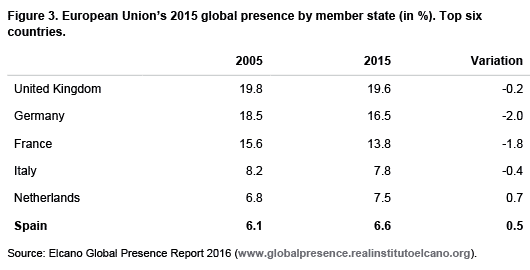
Spain‘s economic woes have not prevented the country from maintaining its global presence. The country remained in 12th position out of 90 countries in the 2016 Elcano Global Presence Index Report and with a slightly higher score (see Figure 1).

The index, the result of adding together 16 variables of external projection which are aggregated according to the criteria of experts in international relations, measures the ability of countries to project themselves beyond their borders and the extent to which they are participating in and shaping the process of globalisation.
It measures global presence based on three fields. First, it ranks a country’s economic presence, including outward foreign direct investment and other elements such as energy, services and manufactures. Second, it assesses a country’s military presence, which is determined by the number of troops deployed abroad and the equipment available for deployment, Third, it includes statistics on a country’s soft presence, which is based on a wide number of factors including exports of cultural products, tourist arrivals and official development aid.
Spain’s economic presence (49% of its total global presence) was a little higher last year, while its military presence (1.8%) was unchanged and its soft presence (49.2%) a little lower (see Figure 2). Spain ranked 19th in economic presence, 14th in military presence and 8th in the soft dimension. The increased economic presence between 2014 and 2015 was largely due to greater exports.

The index does not measure power nor does it reflect the effort of countries to achieve greater internationalisation or the openness of countries. Instead it shows the results of internationalisation and examines the external projection of countries more than the way in which they absorb the external action of other countries within their national territory. The index thus takes into account the exports of manufactured goods but disregards the imports.
By comparing a state’s presence with its actual power (or influence), it is possible to measure the extent to which it is punching above or below its weight. In Spain’s case, it punches below its weight since it has more presence than influence.
In the Elcano European Presence Index, Spain is ranked 5th out of 28 countries, between Belgium and Italy. Its presence declined in 2015 due to lower exports of services to the EU.
The slight increase in the global presence index score (from 175.6 in 2014 to 177.9) and the lower European presence score (from 364.42 to 355.53) shows Spain gaining presence outside the EU, albeit only marginally. The two indices use different scales.
Spain’s contribution to the EU’s global presence is 6.6%, up from 6.1% in 2005, putting it in sixth place (see Figure 3).

Spain’s global index score quadrupled between 1990 and 2015, underscoring the extent to which the country has reasserted itself into the international community since the transition to democracy from the Franco dictatorship (1939-75), a process that coincided with globalization. While Spain’s share of the global presence index rose from 2% to 2.3% between 1990 and 2015, Germany’s dropped from 6.5% to 5.3%, France’s from 6.2% to 4.1% and Italy’s from 3% to 2.4%, only a tiny bit above Spain.


